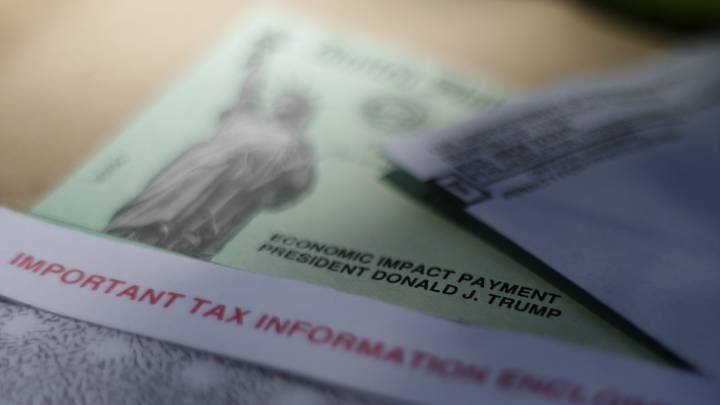Lifestyle, News trend
Stimulus check second round: what plans are under discussion
The first round of coronavirus stimulus checks started being distributed in April. The White House and Congress are still discussing a second round of payments
The IRS released data on the first round of stimulus checks last Friday, with $157.9 billion paid out to Americans in 88.1 million non-taxable stimulus checks so far to help individuals cope with the effects of the coronavirus pandemic. A total of 150 million stimulus checks are expected to be paid by the end of the program, with House Speaker Nancy Pelosi pushing for another $1 trillion to cover shortfalls in the budget across states.
Second stimulus check still being debated
What is yet to be decided is whether there will be a second round of stimulus checks. At present there is nothing signed into law to send out a second stimulus check, but there has been a groundswell of opinion across the country that the first check may not be sufficient.
A further $484 billion coronavirus relief bill was signed into law on Thursday 30 April but this was aimed at small businesses and did not contain any provision for a second stimulus check for individuals.
However, a recent survey by SimplyWise, a financial tech company, revealed that 63% of Americans consider they will need another stimulus check within three months, as the economic effects of Covid-19 continue to be felt.
Dems pushing for more stimulus checks
Democratic leaders in the House of Representatives have indicated they are keen on the idea of a second round of checks, and even the possibility of a system of ongoing monthly payments.
The Emergency Money for the People Act, introduced by Rep. Tim Ryan and Rep. Ro Khanna with a further 17 Democrat sponsors wants to give Americans 16 and older a $2,000 stimulus check each month for the next six months.
Khanna said of the need for further stimulus checks: “A one-time, twelve hundred dollar check isn’t going to cut it,” going on to argue that “Americans need sustained cash infusions for the duration of this crisis in order to come out on the other side alive, healthy, and ready to get back to work.”
Moreover, sixty-two members of Congress have also signed a letter in favour of recurring monthly payments, seeing them as the most efficient mechanism for “delivering economic relief to those most at-risk in this crisis.” Among the signers were Sen. Bernie Sanders (I-Vt.), Rep. Alexandria Ocasio-Cortez (D-N.Y.) and Sen. Kamala Harris (D-Calif.).
However, many Republican lawmakers are not keen on the idea, with Steve Scalise reportedly calling it a “radical socialist” idea.
Despite this opposition from Republicans, there is a growing recognition that some form of additional payments will be necessary, according to Michael Sury, a lecturer in finance at the University of Texas at Austin and managing director for the Center for Analytics, in comments to HuffPost. “Still, it is likely to face headwinds in the Senate ― while there is an appetite to provide additional support, there are growing concerns about the price tag,” he said.
Donald Trump “considering” second stimulus checks
Donald Trump has discussed the possibility of a second stimulus check, saying back on 7 April in a press conference that it was “absolutely under serious consideration.”
However last Saturday, White House economic adviser Kevin Hasset said that another round of coronavirus relief legislation might not be necessary, arguing that “because there’s been good news really, that the opening up is starting to happen faster than we expected” then there is a chance no further relief, including a second stimulus check would be needed.
Donald Trump however had said earlier last week that he was considering funding for a further stimulus package, but that he wanted to “take a little bit of a pause” before passing it. He had been pushing for a payroll tax cut in order to encourage people back to work, although this didn’t get the full support from his Republican colleagues.
The key here is that Democrats are want to spend big – with funding for housing, internet access, food aid, Medicaid and mortgage relief, among other aspects. Their counterparts, however, want to watch how the current stimulus packages play out before spending more.
In previous comments adviser Hasset had said that it was very likely that there would be a fourth phase of relief, saying that he knew “Senator [Mitch] McConnel and Speaker [Nancy] Pelosi are working on that… so I think the odds of there not being another round… are pretty low.” McConnell has said though that litigation was a red line for Republicans, as fears grow over huge law suits from companies.
Second stimulus check: what happens now?
Effectively, for a second stimulus check to become a reality, lawmakers from both sides of the political divide will need to come together to agree. How those conversations, expected to take place over the next few days, go will determine whether there is a second stimulus check or not, and whether or not there may be recurring stimulus checks.

